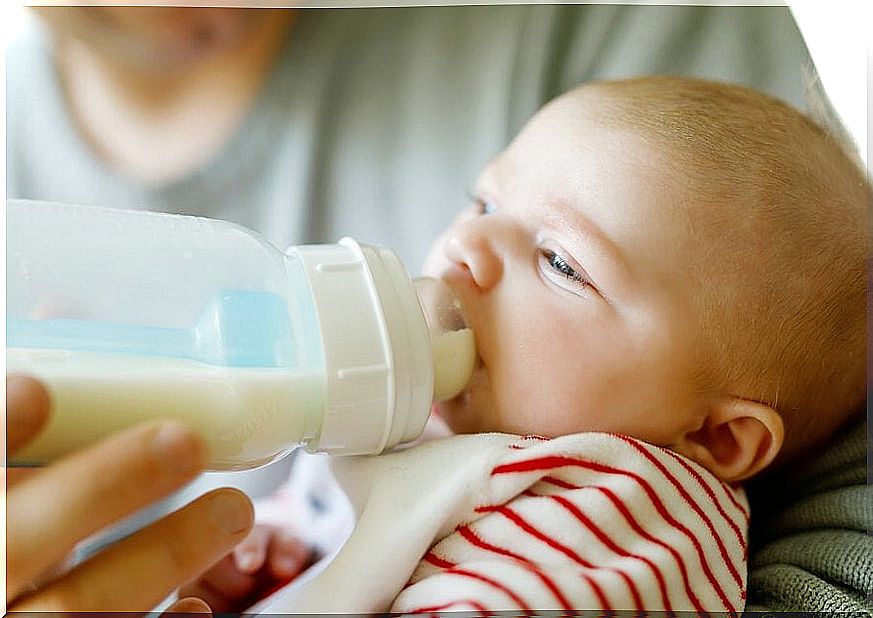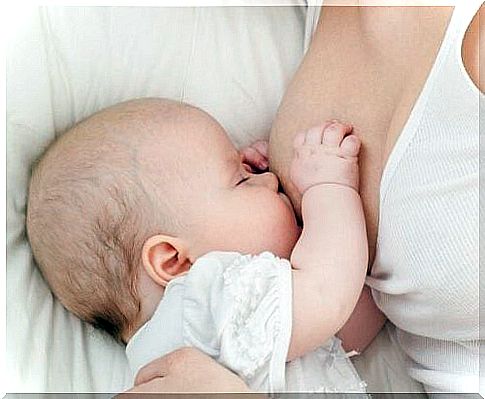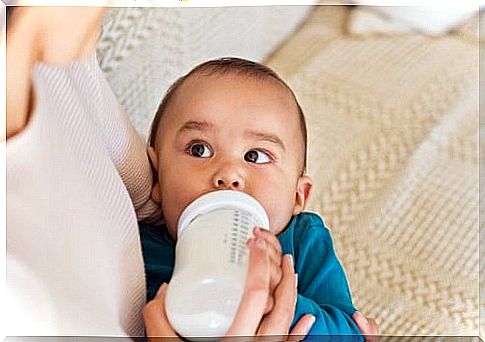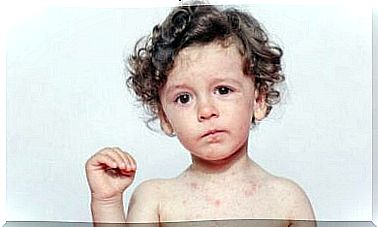Amount Of Milk For Babies Recommended According To Their Age

All parents want their children to grow up, to be healthy and strong. Therefore, we ask ourselves, what is the recommended amount of milk for babies in relation to their age?
Whether you are feeding your baby formula or breast milk, you need to know how much is recommended for his or her age.
Although there is often a standard amount that depends on the child’s age in months, it can vary from child to child.
The right amount of milk for babies according to their age
Breast-feeding is recommended during the first six months. Unless you are offering your breast milk through a baby bottle, it is difficult to see how much bulk milk is being given.
Keep in mind the following information.
In a meal, it is normal for one or both breasts to be emptied. The baby’s intake of milk should last about 10 minutes. The baby takes about 5 minutes to extract the milk, and another 5 minutes to digest it.
Keep in mind that some children are able to suck faster than others.
The recommended amount of milk for babies according to their age
If you can not breastfeed for whatever reason, formal milk is your best friend. Keep in mind, however, that if your child drinks milk from the bottle, pay attention to how much he eats.
During the first few weeks, it is important to feed your baby as he requires it. This means that you should give your baby breast milk or formula when asked.
On the other hand, as babies grow it is important to control the amount of breast milk, or formula you give them. This is done to maintain a healthy weight.
Therefore, it is important to know the amount of milk for babies that is recommended by specialists.
For infants from 0-2 months
At this age , babies usually eat between 88ml and 150ml during each meal. It should happen every 3 to 4 hours. However, some children choose to eat only every 4 to 5 hours. If appropriate, you can even wake your baby to give milk.
Babies between 3 and 6 months
During this period , babies eat between 120 ml and 180 ml of milk during each meal. It is normal for babies to sleep for long periods during this period. Some even sleep all night. If this is the case for your baby, do not wake him up to feed him.

Babies between 7 and 12 months
At present, babies can drink up to 3 to 5 bottles every day. This is equivalent to 240 ml of milk for each meal. If the baby has already started eating other types of food, you can give him milk at longer intervals.
Once they are 12 months old, you can replace formal milk with cow’s milk, after talking to your pediatrician. The amount of milk you give can be up to 2 glasses a day. You can also supplement with yogurt or cheese.
How do you know if the baby is getting the right amount of milk?
You may notice the following things in your baby if you give the recommended amount of milk. A sign that your baby has had enough milk is when he closes his mouth or turns his head when you offer the bottle.
The child may also fall asleep when he has finished eating. When he falls asleep, he looks relaxed. Other useful indications are also how many times the baby is fed, the weight gain and the number of times diapers need to be changed. Stools should be done 3 to 5 times a day.
Types of milk formula
There are different types of milk formula. Here are a few examples:
- Ready to use: This milk is very practical as it does not require any preparation. The downside is that it is expensive.
- Concentrated liquid: This type should be mixed with equal amounts of water.
- Powdered milk: To prepare powdered milk, mix 60 ml of water with one spoonful of milk powder. It is the most recommended solution as it can be stored for a long time. It is also the most economical.
- Special milk formulas are available for children with special needs. For example, there are formulas for children with reflux. There are also formulas for babies born prematurely or babies born with a low weight. There are even special formulas made from soybeans and hypoallergenic materials.
These different milk options contain nutrients similar to those found in breast milk. It helps strengthen the baby’s immune system. They also contain important vitamins and minerals.

Symptoms of allergy to breast milk
There are certain signs of allergy such as rash on the face or anus. Children can also have diarrhea or constipation. In some cases, the stool can be hard and very compact.
On other occasions, babies may become irritated or cry after eating. They may even vomit, or be restless when going to sleep. If you notice any of these symptoms, stop using the milk formula and contact your pediatrician.
Feeding your baby the right amount of milk for babies should be one of your top priorities as a parent. Therefore, make sure that you are well informed and in accordance with the established parameters.
Ask your doctor for advice if you have any questions or concerns.









